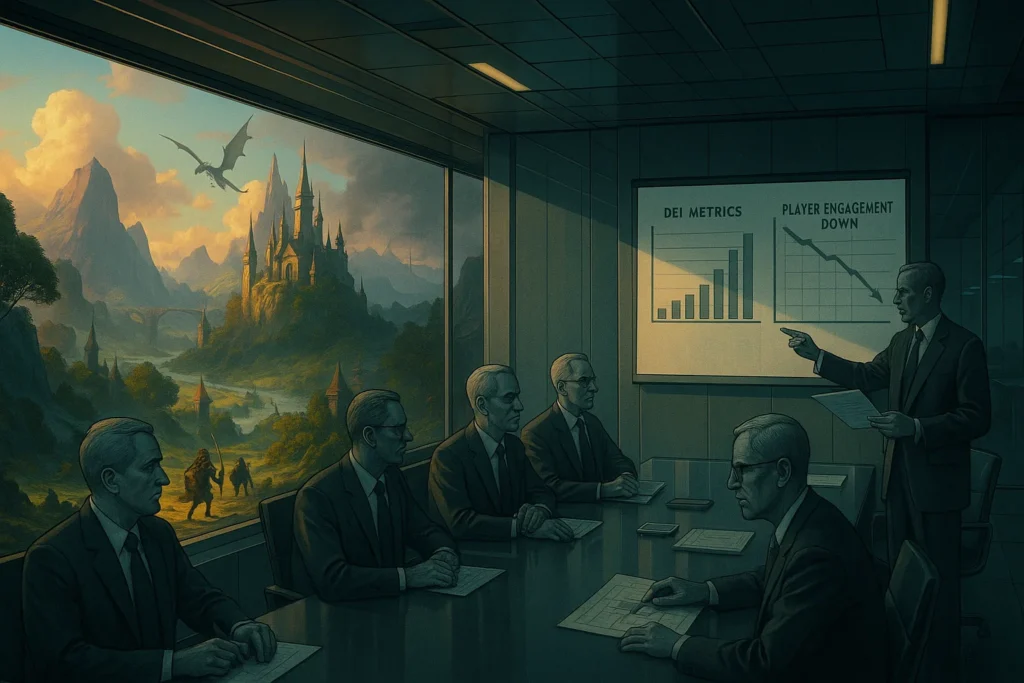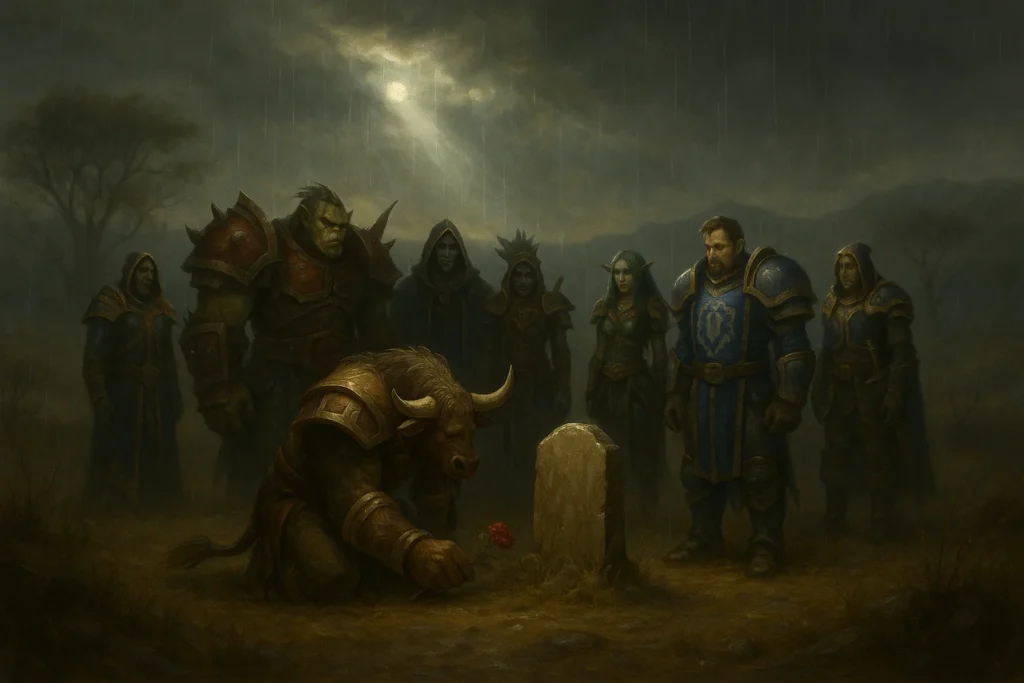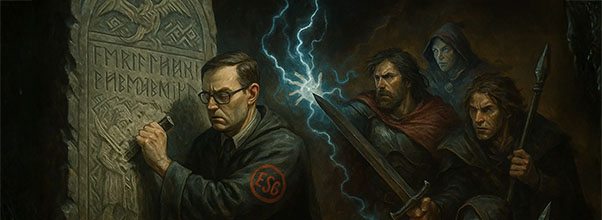If you want to see the pure, unadulterated will of the MMO playerbase, ignore the glossy trailers for the next forgettable live-service sequel. Look to the shadows. Look to the private servers.
A recent investigation by The Lazy Peon, “The INSANE Popularity Of MMO Private Servers”, provides the crucial evidence. He details the staggering numbers: Turtle WoW peaking at nearly 70,000 daily players, Project 1999 maintaining healthy populations for over 15 years, and Return of Reckoning not just preserving a dead game, but actively thriving for a decade.
This is not a niche hobby. It is a mass migration. Peon’s video documents the what. Our purpose is to name the real why. Players are not fleeing to these legally gray projects for nostalgia or cheap subscriptions. They are executing a coordinated withdrawal from a product that has become actively hostile to them. Logging into a private server is no longer escapism—it is an act of defiance. It is a strike with a login screen. It is a defection from the ESG empire.
The Meritocracy of Passion vs. The Bureaucracy of Compliance
The developers behind Turtle WoW or Project Epoch are volunteers. Their credibility is earned through their ability to deliver an experience players genuinely want. If they fail, their server dies. This is a brutal, pure, and honest feedback loop that corporate studios have completely abandoned.

Modern AAA development is the antithesis of this. Studios are now shackled with internal “inclusion task forces,” narrative “sensitivity readers,” and ESG compliance officers who wield veto power over class design, faction aesthetics, and story arcs. Veteran designers are sidelined by consultants proficient in HR dogma but ignorant of game design. The primary goal is no longer creating a compelling world; it is manufacturing a product that will generate a high ESG score from asset managers like BlackRock.
The result is that gameplay decisions are no longer about fun or challenge, but about compliance. It is a corruption of the entire creative process.
The Meritocratic Ideal vs. The Diversity Quota
This divergence in quality starts at the hiring door. The private server scene is a pure meritocracy. Developers, coders, and artists are selected for one reason: their proven skill and passion for the game. Their authority is earned through competence.
Conversely, the modern studio operates under the ESG mandate, which enforces “Diversity, Equity, and Inclusion” hiring quotas. This is a deliberate policy of selecting for ideology over aptitude. The primary criterion shifts from “Is this candidate the most skilled and experienced?” to “Does this candidate fulfill an identity-based quota and adhere to the correct ideological worldview?”

The result is that you are not getting the best and brightest. You are getting the most compliant. Veteran designers, systems architects, and writers who built the genre’s golden age are sidelined or purged in favor of candidates whose chief qualification is their familiarity with the language of critical theory, not game design. A team built this way is not optimized for creating fun, challenging, or coherent worlds; it is optimized for producing content that will pass an internal ESG audit.
This explains the palpable decline in quality. The soul of a game is forged in the talent and vision of its creators. When you systemically filter out top-tier talent in favor of ideological conformity, you are not just sanding off the edges—you are replacing the engine with a virtue-signaling ornament. The gameplay feels shallow, the systems feel focus-tested, and the narrative feels like a lecture because, in essence, that is what the team was hired to produce.
Preservation of Vision vs. Revision of History
Private servers like SWG Legends or Ultima Online Outlands treat preservation as a sacred duty. They understand that a game’s soul is found in its entirety—its punishing difficulty, its distinct faction identities, its traditional archetypes. They preserve the original vision.
Official studios, enslaved to ESG’s mandate for “progress,” are engaged in a continuous revision of their own history. Lore is retconned to serve modern political narratives. Factions are homogenized in the name of equity. Iconic characters are rewritten or purged. This is not evolution; it is institutional vandalism. It does not create new worlds; it systematically dismantles old ones, producing a hollowed-out, Frankenstein-like product that is alien to its own legacy.
Organic Community vs. Corporate Daycare
The communities on servers like Warmane or classic EverQuest emulators are self-policing organisms. They operate on shared norms, reputational capital, and the direct involvement of GMs who are part of the culture. Justice is administered with nuance and context.

The official experience is digital daycare: automated, zero-tolerance harassment systems designed by corporate HR. Natural social dynamics—rivalries, trash talk, the entire spectrum of human interaction—are stamped out by algorithms. The goal is not a living world, but a sterile, risk-free playground. It is safe, sanitized, and utterly lifeless.
Private Servers as Protest
The “protest angle” is critical. Playing on a private server is a deliberate act of non-compliance. It is a way to enjoy the game you love while financially starving the corporation that holds its original spirit in contempt. Every login is a vote against the ESG framework that has put DEI idealogy into every video game. The massive populations on these servers are not a curious anomaly; they are the direct, measurable cost of an industry that chose ideological compliance over its own player base.
Conclusion
The lesson is written across the login queues of a hundred private servers: Players will embrace jank, instability, and legal risk for a game that is authentic, challenging, and built for them.
The vibrant communities thriving in the shadows are the control group in a disastrous experiment. They prove conclusively that the desire for well-designed, coherent, and mythic worlds never died.
The players have not left. They are waiting for the industry to abandon its suicidal pursuit of ESG scores and remember who it exists to serve.
—Wolfshead





I maybe have said this before, but when it was announced that Classic WoW will release in 2019, I was excited to play the original version on the official servers and paid for 3 months, but before the first 30 days ended, I realized it was no different than a private server, with the only difference that it gave me the FOMO anxiety that if I don’t play enough even if I don’t feel like, I will have wasted the time I bought so I forced myself to play when I didn’t feel like it and quickly realized this is not healthy and decided to delete my character and account and cancel my subscription and went back to private servers where I can play whenever I want and for however much I want without the anxiety that I might miss my play time.
Even on Turtle WoW, for the past 3-4 months my Warlock was in Feralas doing a quest – I was busy with other things and only logged in every few weeks for about 5-10 minutes, killed one quest mob and left so effectively I kept doing that quest for over 3 months and I don’t feel one bit bad about it – I went and finished it and them some more when I felt like it, no regret or feeling of guilt.
Not only that, but from what I’ve read, the Classic version of WoW is kinda abandoned and left to its devices and they just release new Classic versions for easy money while the bots and cheaters are unbearable to deal with. Whereas on private servers there are almost no bots or cheaters, especially on Turtle WoW I haven’t seen any.
I’ve played many MMOs over the years, lost of Asian F2P ones that shut down completely and they only continue existing on private servers. Some are taking the Turtle WoW route and adding new content, some are even working on Unreal Engine clients for their servers.
Runes of Magic is a F2P game, the official server is by GameForge, but the game has been plagued by memory leak issues for over 10-15 years. The original developers and GameForge don’t care about it and said: “There is nothing that can be done about it”. And then there is a private server for RoM and the developers found out how to reverse-engineer the client and fixed the memory leak issue so the official server causes your game to crash every 40-60 minutes, while the private server doesn’t at all.
Even if an MMORPG, be it F2P or not, has a private server, chances are that the private server will provide a superior experience.
Recently “the Saudis” acquired EA. Some hope that this will at least be the end of wokeness, but it is replacing one evil with another in the end.
I also cannot wait for the industry to unshackle itself from this nonsense. The ever same more than compliant people who benefit from the system are hard to get rid of, unfortunately.
P.S. Allwynd, I read everything you wrote, just wanted to let you know that. Replying is often a bit complicated, so just let me say I quite agree to what you said in other articles! 🙂